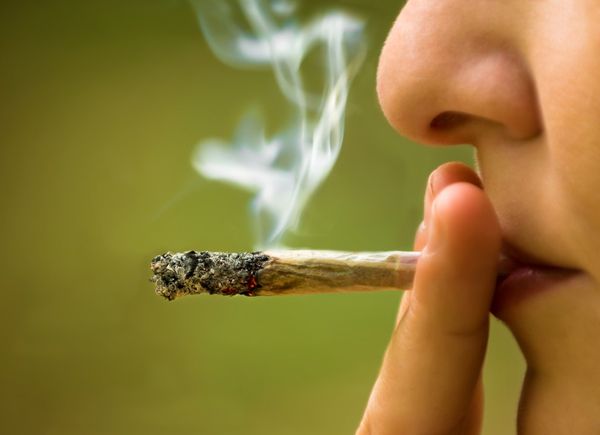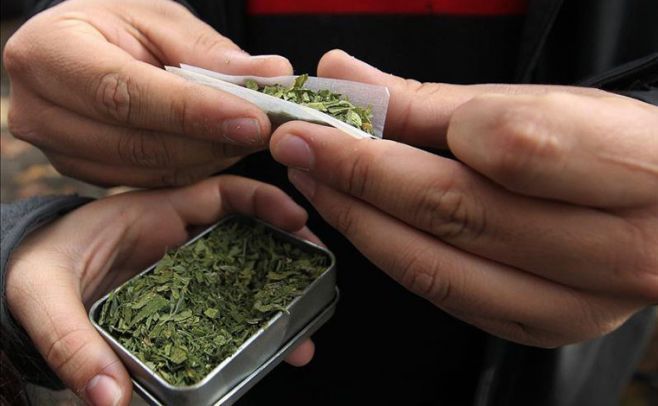- Is cannabis addictive?
- This is the eternal debate, a widely discussed subject that is sometimes approached in the wrong way by both supporters and detractors.
- In this post we will explain what cannabis addiction is while focusing on the different risk factors that can lead to its development.

For decades, the addictive potential of cannabis has been used both by prohibitionists, who often convey an exaggerated portrayal of the addictiveness of the substance, and by legalisation advocates, who tend to refute all claims that cannabis is addictive. In any case, this is not an innocuous substance and it is important to provide users with genuine and verified information on its effects. So why not take a more unbiased approach?
Some terms worth defining before digging any further…
Drug addiction, tolerance and dependence are often mistaken for synonyms, but actually each word defines a different way in which a substance may affect the body.
Tolerance
The level of tolerance to a substance is directly linked to the intensity of the user's response to it. When tolerance occurs the person no longer responds to the substance in the way they did initially, needing a higher dose to get the same effect or sensations.
Dependence
When dependence to a substance occurs, the user suffers a series of physiological and psychological reactions defined as withdrawal symptom. These range from mild to lethal depending on the substance. Patients often develop dependence on their prescribed medication and have to discontinue it gradually in order to reduce withdrawal symptoms. Being dependent on a substance, though, does not necessarily imply an addiction.
Addiction
Contrary to tolerance or dependence, addiction is a chronic brain disease characterised by an overriding impulse to compulsively take the drug despite the harm it causes. It is classed as a brain disorder that can lead to certain behaviours that are hazardous to health or personal integrity. Just as tolerance and dependence, it is caused by the repeated use of a substance.
Can cannabis lead to tolerance?
Indeed. As a rule, the long-term abuse of a substance eventually leads to the need of a higher dose in order to get the same effect as before. In the most severe cases, the developed level of tolerance is so high that the user no longer feels the psychoactive effect of cannabis.
Can cannabis lead to dependence?
Several studies suggest that regular, excessive consumption of cannabis over a long period of time can indeed lead to dependence. And even if the level shown is lower than for other psychoactive drugs, between 5 and 10 percent of cannabis users meet the criteria for dependence according to the Diagnostic and Statistical Manual of Mental Disorders DSM IV-R.
In fact, evidence shows that long-term cannabis abuse can lead to withdrawal symptoms on cessation. Here are the symptoms cannabis dependents may experience if they stop consumption:
- Anxiety
- Insomnia and sleeping disorders
- Loss of appetite
- Irritability
Risk factors in the development of cannabis dependence:
- Early initiation. Several studies suggest that people who start using cannabis on a regular basis as teenagers are at higher risk of developing dependence and addictive behaviours.
- High frequency of use.
What are the symptoms of cannabis dependence?
- Development of tolerance: the user needs to gradually increase the dose in order to get the desired effect.
- Onset of withdrawal symptoms on cessation.
- A need of repeated doses to feel good.

Can cannabis lead to addiction?
As already stated, addiction is defined as a mental disorder that causes people to compulsively consume one or several substances or to develop compulsive behaviours such as gambling. As any other drug, long-term cannabis abuse can in fact lead to addiction. Here are some of the symptoms that may indicate an addictive behaviour:
- Taking larger doses than intended.
- Sense of frustration and of lack of personal freedom, as the user wants and even tries to stop consumption but inevitably fails.
- Obsession: Cannabis is a priority for the user and a major aspect of their everyday life. Generally, cannabis addicts spend much of their time on issues concerning the substance - e.g. how to get it or use it.
- A declining social life with less and less time devoted to work, social gatherings and leisure activities.
- Loss of control: The user is unable to limit or stop the use despite being aware of the harm it causes them and/or those around them.
- Denial: The user refuses to acknowledge their addiction and gets defensive when someone suggests they may have a problem.
What factors can lead to cannabis addiction?
The factors that may influence the development of an addiction are not clearly established, as the process can be affected by different variables with varying levels of impact. Currently, addiction is defined as a mental disorder that can be caused by several factors:
- Genetic predisposition
- Cultural and social context
- Economic and political context
- Personal factors: family and social environment, stress, emotional traumas
- Route and method of administration
- Frequency of use
- Associated lifestyle
How does the biology of addiction work?
The brain's reward system is a neural network that causes feelings of pleasure when activated in order to drive us to carry out basic survival activities such eating or having sex for reproduction.
The system works through a neurotransmitter known as dopamine that plays a major role in motivation, long-term planning, decision making and the like.
How do these brain stimuli work?
Let's take an example. If our body needs feeding, our brain will release dopamine at the sight of food to generate a stimulus that prompts us to try to get that food. And when we do, we derive great pleasure from it. There are different levels of dopaminergic stimulation that provide varying levels of pleasure.
Put it another way, the neurons synthetize and release dopamine into several parts of the brain, among which the so-called nucleus accumbens, also known as the brain's pleasure centre, making us feel a sense of pleasure.
The problem with drugs is that, as the dopamine amount released into the nucleus accumbes is much higher than when the stimulus comes from inputs like sport or sex, they cause an overstimulation, meaning that the pleasure centre is stimulated more intensely and for longer than it would otherwise be.
As a result, the brain reduces the number of receptors in the postsynaptic membrane to limit the amount of dopamine that reaches the nucleus accumbes in an effort to protect itself from the overstimulation, leading to the so-called tolerance. This is why users need increasingly larger doses of the substance in order to get the same degree of stimulation in their pleasure centres.
Likewise, the daily stimuli that should provide motivation through the reward system (having sex, eating, doing sport, building social ties) no longer generate the same degree of pleasure, partly because the dopaminergic stimulus is considerably lower than when generated by the substance and partly because there are fewer receptors in the postsynaptic membrane. This is why addiction sufferers tend to be apathetic and/or depressive.
Several studies show that long-term abuse of cannabis affects the brain's reward system and can therefore lead to addiction. Apparently, the neural changes cannabinoids cause to the brain's reward system are no different from those caused by other drugs. As a result, even if cannabis is not as addictive as other substances like heroin, there is still a certain risk of developing and addiction when the substance abuse becomes chronic, to the point that some regular cannabis users adopt addictive behaviours that have a negative impact on their lifestyle.
How to fight cannabis addiction
While it is true that cannabis is not as addictive or as dependence-inducing as other drugs, including legal substances such as alcohol, long-term abuse is not without consequence. There are many specialized centres and therapies that can effectively treat cannabis dependence. The first and most important step is that the sufferer accepts they have a problem so that they can seek information on how to address it.
The next step is to seek medical help in order to limit or stop use completely. Reintroducing healthy habits, such as doing a sport, and getting support from friends and family can also be of great help in the rehab process.



Comments from our readers
Did you like this post?
Your opinion about our seeds is very important to us and can help other users a lot (your email address won't be made public).